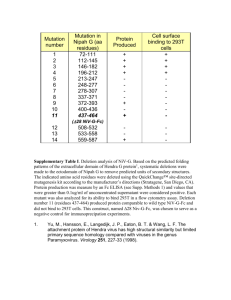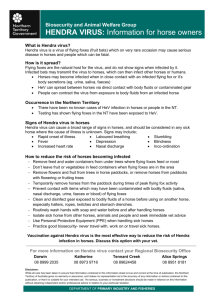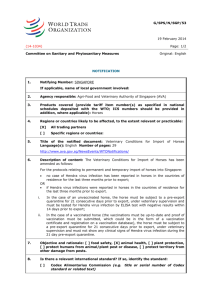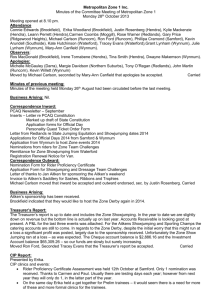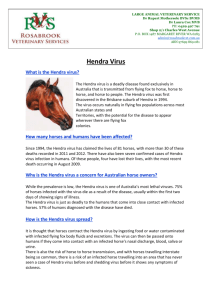Hendra What is Hendra and what Can I get Hendra?
advertisement
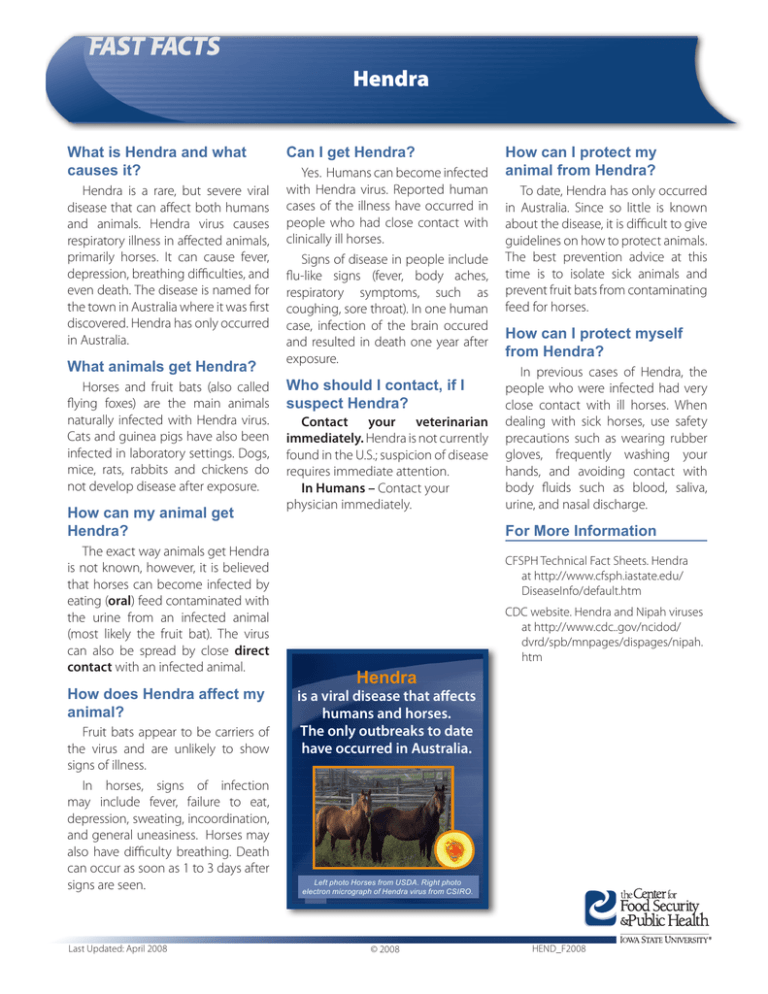
Hendra What is Hendra and what causes it? Hendra is a rare, but severe viral disease that can affect both humans and animals. Hendra virus causes respiratory illness in affected animals, primarily horses. It can cause fever, depression, breathing difficulties, and even death. The disease is named for the town in Australia where it was first discovered. Hendra has only occurred in Australia. What animals get Hendra? Horses and fruit bats (also called flying foxes) are the main animals naturally infected with Hendra virus. Cats and guinea pigs have also been infected in laboratory settings. Dogs, mice, rats, rabbits and chickens do not develop disease after exposure. How can my animal get Hendra? The exact way animals get Hendra is not known, however, it is believed that horses can become infected by eating (oral) feed contaminated with the urine from an infected animal (most likely the fruit bat). The virus can also be spread by close direct contact with an infected animal. How does Hendra affect my animal? Fruit bats appear to be carriers of the virus and are unlikely to show signs of illness. In horses, signs of infection may include fever, failure to eat, depression, sweating, incoordination, and general uneasiness. Horses may also have difficulty breathing. Death can occur as soon as 1 to 3 days after signs are seen. Last Updated: April 2008 Can I get Hendra? Yes. Humans can become infected with Hendra virus. Reported human cases of the illness have occurred in people who had close contact with clinically ill horses. Signs of disease in people include flu-like signs (fever, body aches, respiratory symptoms, such as coughing, sore throat). In one human case, infection of the brain occured and resulted in death one year after exposure. Who should I contact, if I suspect Hendra? Contact your veterinarian immediately. Hendra is not currently found in the U.S.; suspicion of disease requires immediate attention. In Humans – Contact your physician immediately. How can I protect my animal from Hendra? To date, Hendra has only occurred in Australia. Since so little is known about the disease, it is difficult to give guidelines on how to protect animals. The best prevention advice at this time is to isolate sick animals and prevent fruit bats from contaminating feed for horses. How can I protect myself from Hendra? In previous cases of Hendra, the people who were infected had very close contact with ill horses. When dealing with sick horses, use safety precautions such as wearing rubber gloves, frequently washing your hands, and avoiding contact with body fluids such as blood, saliva, urine, and nasal discharge. For More Information CFSPH Technical Fact Sheets. Hendra at http://www.cfsph.iastate.edu/ DiseaseInfo/default.htm CDC website. Hendra and Nipah viruses at http://www.cdc..gov/ncidod/ dvrd/spb/mnpages/dispages/nipah. htm Hendra is a viral disease that affects humans and horses. The only outbreaks to date have occurred in Australia. Left photo Horses from USDA. Right photo electron micrograph of Hendra virus from CSIRO. © 2008 HEND_F2008
